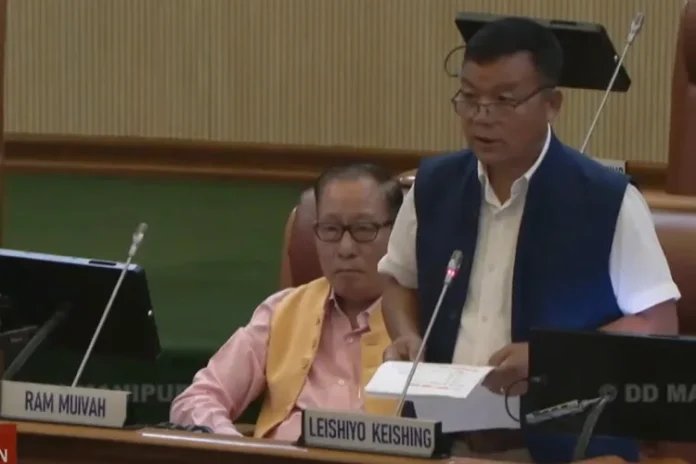Imphal: MLA Leishiyo Keishing on Monday raised significant concerns in the 6th session of the 12th Manipur Legislative Assembly regarding the creation of Kangpokpi district, highlighting the historical grievances and ongoing discontent among affected communities.
Speaking on a calling attention motion, Keishing noted that the formation of Kangpokpi district, formerly known as SADAR Hills, occurred despite several Memorandums of Understanding (MoUs) between the Indian government and the involved parties, which were seemingly disregarded.
Keishing emphasized that the demand for district status dates back to the 1970s, with repeated assurances from the central government to consult all stakeholders before making any decisions. However, he argued that the district was established without adequate consultation, leaving many communities feeling marginalized.
A key issue raised by Keishing was the geographical inconvenience for residents of Kangpokpi district, who in some areas must pass through two or three other districts to reach their headquarters. He questioned the rationale behind the district’s boundaries, noting that the official reason of administrative convenience does not match the on-ground reality.
In response, Chief Minister N. Biren Singh acknowledged the flaws in the district’s formation, admitting that while the official reason for its creation was administrative, the decision was primarily driven by political interests. “It is not for administrative convenience but for political interest,” Singh conceded, calling it a past mistake that needs to be rectified to prevent further unrest.
Singh also expressed concern over the perception that the district was created along ethnic lines, describing it as unfortunate. He pointed out that some residents do not identify themselves primarily as Manipuri, a deep-rooted issue in the state. Singh warned that there are fears the district could become associated with a specific ethnicity, potentially leading to ethnic tensions and the imposition of taxes on others by the dominant group. “This is worrying,” he added.
He advocated for a reorganization based on genuine administrative needs and recommended involving legislators and Civil Society Organizations (CSOs) to ensure a fair and effective solution.


